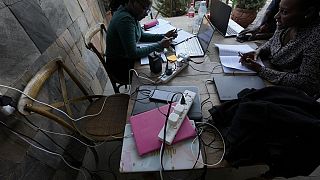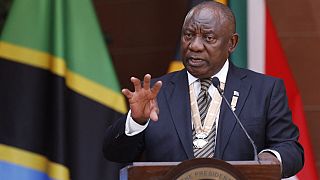South Africa
South Africa could be nearing the end of daily power cuts, the country's electricity minister said on Sunday.
Minister Kgosientsho Ramokgopa said that South Africa was beginning to keep up with demand and that the country could soon have no blackouts for twenty-four hours, though he declined to give a specific date.
South Africa is set to see its most blackout days in history this year, with daily power cuts of up to almost 10 hours a day.
The loadshedding, as the cuts are known locally, have heavily impacted businesses and households.
The economy is already struggling under high inflation and interest rates and the power cuts are expected to reduce GDP by 2 percentage points in 2023.
Speaking at a news conference on Sunday, Ramokgopa said the warmer months at the end of the year would ease demand, as the southern hemisphere's warmer season begins.
"I know when we get into summer conditions, then at the current rate, generation will far exceed demand," he said.
Winter demand
Blackouts have eased in recent weeks, a welcome respite from months of cuts.
The government implements loadshedding in stages ranging from one to eight, with eight being the highest and resulting in over 10 hours of daily power cuts.
With the power generation beginning to keep up with demand, Ramokgopa says the country would be coming down from Stage 6 to Stage 3 in the space of six weeks.
However, as South Africa heads into its coldest months in July and August, there are fears that higher heating demands could outstrip electricity supply.












Go to video
South Africa's tax row heads to court as implementation date nears
01:36
Migration and refugee policies key to economic growth, Say UN and IMF experts
Go to video
Foreigners face gold trading ban in Ghana beginning May 1
Go to video
South Africa appoints Mcebisi Jonas as special US envoy in bid to ease tensions
Go to video
South Africa: inquest into death of Nobel Peace Prize laureate Chief Albert Luthuli re-opened
Go to video
10.3 Million tons of food wasted in South Africa as chefs push for sustainability